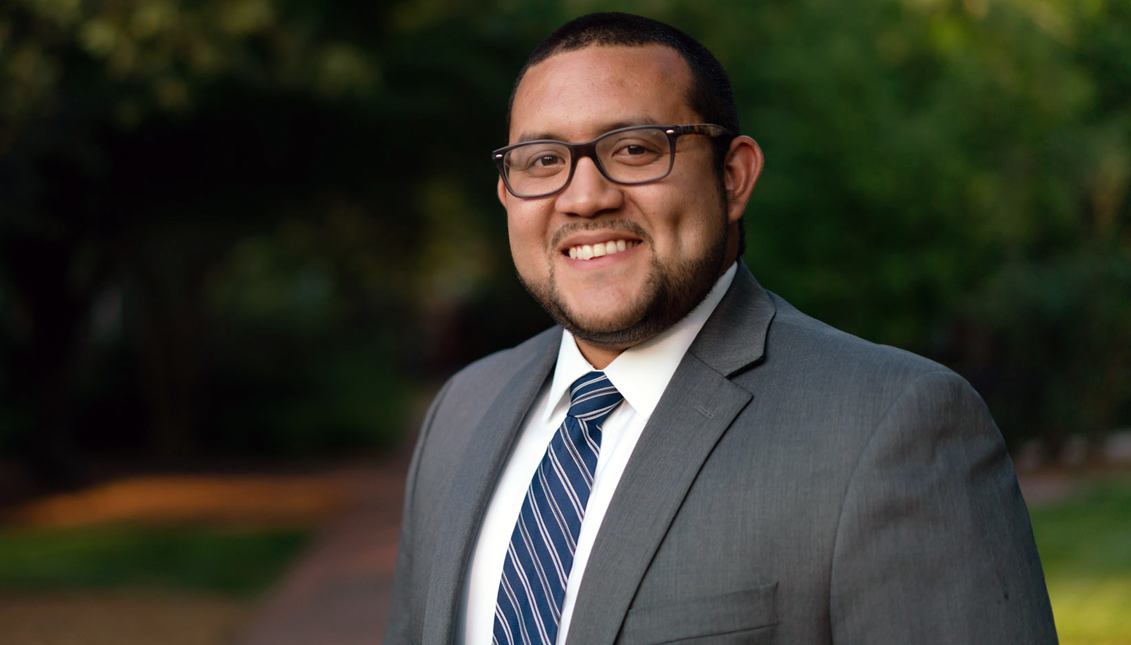
A mobilizing force: Ricky Hurtado could be the first Latino elected to the North Carolina House
This election year has seen an unprecedented mobilizing force in part by the Latinx demographic.
Ricky Hurtado is on a mission in North Carolina, and that’s to transform its political landscape.
Hurtado is running in Alamance County for the North Carolina House District 63. If elected, he would be the first-ever Latino elected to the North Carolina House.
When he first announced his bid, Hurtado had no idea how the year would play out. Back in March, the United States knew of the Coronavirus, but we had no idea our leaders would let it play out this long.
This election, we have the power to transform our political landscape. We have the opportunity to rebuild trust with our elected officials to build a more just and equal NC.
— Ricky Hurtado (@rickyhurtadonc) June 15, 2020
Together, we can, and will, build a better future for our community.
Join us: https://t.co/oF8EDUljD5 pic.twitter.com/jXLjclJqrD
Hurtado had expected a normal campaign, or as normal as any campaign can be in the Trump era. He launched it in March, eager to spend days canvassing, knocking on doors, and getting that face-to-face interaction with potential voters.
He was ready to share his story.
Hurtado is a 31-year-old son of Salvadoran immigrants. His parents crossed the Mexico border into California in the trunk of a car, fleeing the civil war in El Salvador in 1980. They settled in Los Angeles, but soon decided to move to North Carolina in pursuit of fresher air for their son, who had developed asthma.
He grew up in rural North Carolina, went through the public school system, faced discrimination as a Latino, but was able to traverse all this to become a first-generation college student, and then further broke-barriers by attending graduate school at Princeton University.
He’s earned a degree from the University of North Carolina-Chapel Hill, and a Master’s in public policy.
But Hurtado is not exceptional because of his academic accomplishments. It’s by his decision to run for office to further give Latinos a say and representation in North Carolina.
Hurtado launched his campaign in one of the worst years for the Latinx demographic. The coronavirus pandemic is actively killing and sickening Latinx lives at a rate that is exceptionally higher than all other demographics.
Voter suppression, barriers to filling-out the 2020 Census and more have made this year out to be especially grueling, perhaps unmotivating many from becoming involved in the electoral process.
Since North Carolina’s March primary, only 7,800 new Latinx voters have registered to vote according to the NCSBE database.
While North Carolina has 1 million Latinx residents, two-thirds aren’t eligible to vote, either because of age or citizenship status. In Hurtado’s Alamance County, there are three Latinos who can’t vote for each one that can.
But on the bright side, Hurtado has also launched his campaign during a year of record-mobility and outreach in regards to the Latinx vote.
He himself is a part of this movement.
RELATED CONTENT
Latinx leaders are coming out in full force, and the truth is, the nation isn’t ready for what they’re capable of.
Among others, these history-making candidates include Candace Valenzuela, who could be the first Black Latina elected to Congress, Ritchie Torres, who has virtually secured his seat as the first openly LGBTQ Black Latino elected to Congress, Michelle de la Isla, who could the first Latina Congresswoman to represent Kansas, and Georgette Gómez, who could be the first LGBTQ Latina in Congress.
Across the nation, the pandemic has disrupted these Latinx campaigns for office, yes, but it isn’t stopping them in their tracks.
This has led to never-before-seen engagement and mobilization by Latinos like Hurtado, and outlets are only now just paying attention.
Throughout 2020, Hispanic and Latinx voters, organizations, and leaders have proven time and time again that we are engaged in the process. In many cases, like in the case of Hurtado, we are pioneering voices.
In North Carolina, Latinx organizers have been working tirelessly to energize the demographic’s vote now just 25 days before the election.
And while only 4.4% of North Carolina voters are Latinx, it’s a swing state, meaning every demographic, no matter how underrepresented, counts. Especially considering the state’s growing Democratic electorate, reported the Fayetteville Observer.
Latinx turnout in the state — and the nation in general — is traditionally lower than other voting blocs. But this is because campaigns haven’t’ dedicated as many resources or outreach to connect to these potential voters, perpetuating a pattern.
It wasn’t until 2020, when Latinos became the second-largest voting bloc in the nation, that we saw unprecedented outreach attempts to Latinx voters. But they fall short.
That’s why bids to put more Latinos in positions of power, like Hurtado, are needed.











LEAVE A COMMENT: